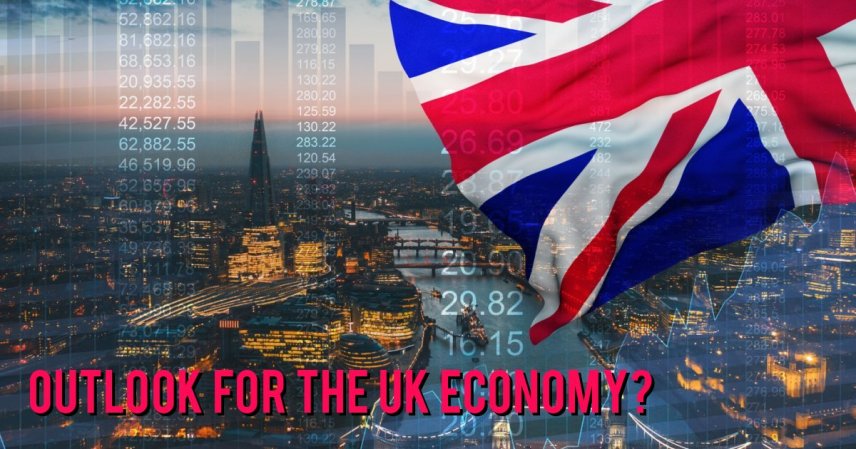
What does the future hold for the UK economy ?
Why is the UK predicted to shrink?
Wednesday 22 February, 2023
In summary
-
Trade negotiations have re-emerged in the headlines
-
The UK economy predicted to shrink this year whilst every other major economy predicted to grow
-
A difficult environment for business investment to pick up
For years, Brexit dominated the headlines and subsequently, the outlook for the UK economy. Although the vote took place in 2016, the status of the new trading relationship was hotly debated and hence only ratified by parliament in 2020. However, the ensuing pandemic combined with the plethora of issues which plagued markets last year, meant it faded into the background. It is now back firmly back on the mainstream press’ radar as Rishi Sunak pushes to strike a deal with the European Union (EU) over the Northern Ireland protocol. At this point of the saga, how has the UK economy been impacted so far?
The economic outlook
When the UK voted to exit the EU, there were numerous concerns about how the economy would fare outside the trade bloc. The International Monetary Fund (IMF) predicts the UK economy will shrink this year, while every other major economy (those in the G7) will grow. While a lot of data points towards a notable reduction in growth, it is a range of factors, including the changing trading relationship, that have contributed. These include the longstanding issue of poor productivity, broader labour shortages, supply chain disruption, a skills gap and low business investment.
A shrinking workforce
Most economies saw their workforce shrink during the pandemic; however, the UK sits as an outlier (as illustrated in the graph below). Workforce numbers failed to bounce back after the crisis due to older people choosing to retire early, along with more people receiving long-term sickness benefits. While the removal of the freedom of movement has made it more difficult for the hospitality, agriculture and care sectors to adequately resource their workplaces, other nations are also experiencing structural shifts in workforces due to factors such as ageing populations.
Lack of investment
For businesses, investors and households; a sense of stability or higher returns are needed in order to invest. As such, it is no surprise that UK investment has lagged as firms have put spending decisions on hold due to wider political and Brexit related uncertainties. Last year, we saw four Chancellors of the Exchequer and three Prime Ministers, and despite all being part of the same political party, each had very different views. Such turmoil has affected the popularity of the Conservative party and currently the Labour party is well ahead in the polls with an election due to be held in less than two years’ time. While Rishi is currently trying to smooth things over with the EU and Northern Ireland, the wider political situation may dominate investment, especially given the adoption of a windfall tax on energy.
Trade deals
Large trade deals have yet to be struck in Brexit-related negotiations – in total there have been around 70, but the vast majority of these have replicated deals that were already in place when the UK was a member of the EU. Although there have been some new deals, for example, free trade agreements with Australia and New Zealand, trade deals with some of the biggest regions, such as the US and China, have yet to come to fruition.
A post-pandemic Britain
All of these issues have been compounded by the pandemic and war in Ukraine, which have pushed inflation to decade-high levels. The cost-of-living crisis is a by-product of this. The UK has a US style tight labour market with a European style tight energy market – both raising the prospects for inflation to remain more elevated than elsewhere. Policy uncertainty is not helping to improve economic growth prospects; hence Rishi has been hard at work to resolve some bottlenecks. Investors do not seem too concerned right now, the FSTE 100 was one of the better performing developed stock markets last year and has hit an all-time high so far this year. Albeit the makeup of this index is those larger cap, global names with exposure to financials and energy.
Important information
This communication is provided for information purposes only and is intended for the exclusive use of the recipient to whom it has been directly delivered by Lonsdale Services and is not to be reproduced, copied, or made available to others. The information presented herein provides a general update on market conditions and is not intended and should not be construed as an offer, invitation, solicitation, or recommendation to buy or sell any specific investment or participate in any investment (or other) strategy. Past performance is not an indication of future performance and the value of investments, and the income derived from them may fluctuate and you may not receive back the amount you originally invest
Although this document has been prepared on the basis of information, we believe to be reliable, Lonsdale Services gives no representation or warranty in relation to the accuracy or completeness of the information presented herein. The information presented herein does not provide sufficient information on which to make an informed investment decision. No liability is accepted whatsoever by Lonsdale Services, employees, and associated companies for any direct or consequential loss arising from this document.
Lonsdale Services is authorised and regulated by the Financial Conduct Authority
Latest News Next Article Previous Article

